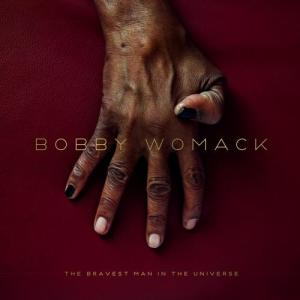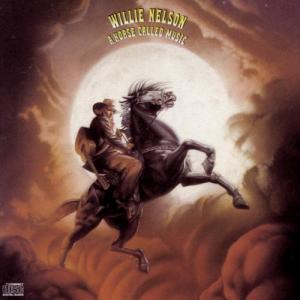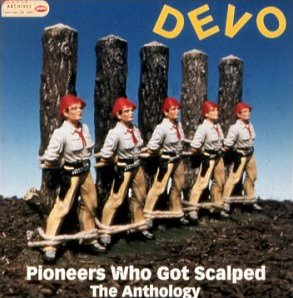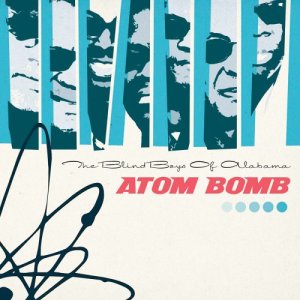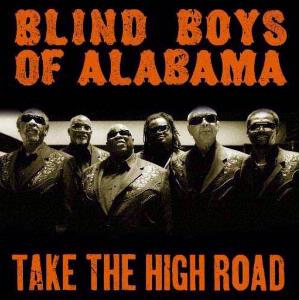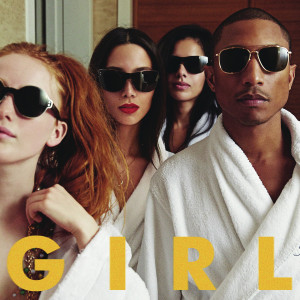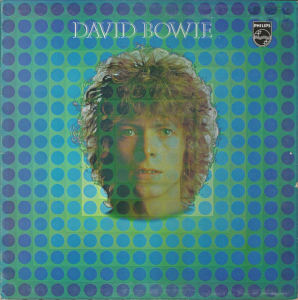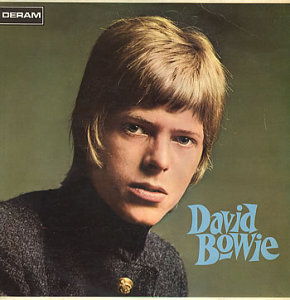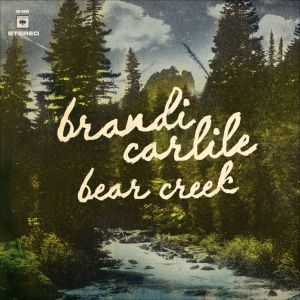
Ariel Pink – pom pom 4AD CAD 3440 (2014)
Ariel Pink’s pom pom, which is credited just to him without the “Haunted Graffiti” moniker, picks up pretty much where Mature Themes left off. Take “Picture Me Gone,” which draws from a “Heroes and Villains”-like Beach Boys melody with 1970s-styled (Surf’s Up) Beach Boys keyboards. “Jello-o” has little bits of glam rock guitar riffs, even a fake wash of arena crowd noise and applause. But, of course, there are lots of reference points to 1980s U.S. culture, particularly child-like things, epitomized by probably the best song on the album, “Dinosaur Carebears,” which goes so far as to incorporate elements of circus calliope sounds with a reference to popular stuffed animal toys (and associated media empire).
Not everyone is completely on board with pom pom or anything else Ariel Pink has done. Another reviewer wrote:
“I’m caught in the awkward position of having to simultaneously respect his goofy zeal and quirky taste in lo-fi texture and malign the unctuousness of his low-register Bowie vocal put-ons and his complete aversion to a perspective that isn’t totally nostalgic for the novelty value of the freakin’ 1980s. Enough with the ’80s, folks! They didn’t work the first time! Christ, at least with a Taylor Swift album you don’t have to invest so much brainspace wondering about irony!”
It is somewhat difficult to accept this position. In longing for “upfront cynicism”, it seems precisely wrongheaded. The goal of “not having to invest brainspace” seems like a cop out. The demand for consciousness — that “awkward position” — is what Ariel Pink does so well. Slavoj Žižek wrote (Absolute Recoil) that every revolutionary event forks into the truly revolutionary path that seems to exceed its causes (influences) and a path of conservative reaction to it that tries to preserve the old order, “Renormalising the breakthrough.” The historical example Žižek gave in music (probably drawn from Theodor Adorno‘s Philosophie der neuen Musik [Philosophy of Modern Music]) was to contrast Arnold Schönberg — the revolutionary path — with Igor Stravinsky — the conservative reaction. In pop music, Taylor Swift (1989) represents one of the conservative reactions to the revolutionary content of Ariel Pink’s music. She hardly goes beyond a kind of Bryan Adams “Summer of ’69” nostalgia that is totally and completely sentimental, and rekindles old, pleasurable feelings to re-inflate the past on its original terms. Pink mostly avoids sentimentality, though there seems to be more of it on pom pom than probably any of his earlier recordings.
What Ariel Pink does with his music is a lot like what has been termed “kynicism”:
“We must distinguish th[e] cynical position strictly from what [Peter] Sloterdijk calls kynicism. Kynicism represents the popular, plebeian rejection of the official culture by means of irony and sarcasm: the classical kynical procedure is to confront the pathetic phrases of the ruling official ideology — its solemn, grave tonality — with everyday banality and to hold them up to ridicule, thus exposing behind the sublime noblesse of the ideological phrases the egotistical interests, the violence, the brutal claims to power. This procedure, then, is more pragmatic than argumentative: it subverts the official proposition by confronting it with the situation of its enunciation; it proceeds ad hominem (for example when a politician preaches the duty of patriotic sacrifice, kynicism exposes the personal gain he is making from the sacrifice of others).
“Cynicism is the answer of the ruling culture to this kynical subversion: it recognizes, it takes into account, the particular interest behind the ideological universality, the distance between the ideological mask and the reality, but it still finds reasons to retain the mask. This cynicism is not a direct position of immorality, it is more like morality itself put in the service of immorality. . . .” (from The Sublime Object of Ideology)
This distinction might explain the monologue delivered by the late 1980s serial killer and junk bond broker character Patrick Bateman (Christian Bale) in the film adaptation American Psycho (2000), based on the Bret Easton Ellis book, when he was pontificating about Huey Lewis & The News:
“Their early work was a little too new wave for my tastes, but when Sports came out in ’83, I think they really came into their own, commercially and artistically. The whole album has a clear, crisp sound, and a new sheen of consummate professionalism that really gives the songs a big boost. He’s been compared to Elvis Costello, but I think Huey has a far more bitter, cynical sense of humor.”
If we take Bale’s murderous Wall Street “psycho” character’s comments at face value, as we probably should, then the “cynical” aspects of Huey Lewis & The News’ music represents, not immoral values, but a kind of morality that happens to service the needs of a cartoonishly immoral status quo power structure, of which the monstrous Wall Street serial killer symbolizes. Taylor Swift’s music kind of embodies the same sort of cynicism used to reaffirm today the ruthless, parasitic hedonism of “1989”. Any cynicism found in the “retro” nostalgia of her 1989 album just reaffirms how little has actually changed since the year its title refers to. Ariel Pink is a more humane reconfiguration of the elements that made up the 1980s. His very reconfiguration of those elements illustrates the disturbing social contexts in which those elements arose, when the middle class began to be fooled by them.
Is what Ariel Pink does unprecedented? Well, no. At least not entirely. Another reviewer wrote:
“I place Ariel Pink as the latest in a long pantheon of winkingly insincere popsmiths from Los Angeles. Maybe it’s the proximity to all those actors, but LA has been ground zero for musical acts that combine an unwillingness to reveal anything personal and an emphasis on parodic humor. The tradition starts with Frank Zappa in the sixties, continues with Oingo Boingo in the eighties, Beck in the nineties, and we find ourselves here today with Ariel Pink and the impending release of “pom pom,” his third album for 4AD Records.”
This is a more interesting take on where Ariel Pink fits in the context of modern Western pop music. Yet, it perhaps fails to give Pink credit for how he differs from some of those other acts. If you look closely at Frank Zappa, for instance, he often mocked the counter-culture (We’re Only In It for the Money). You can look at Zappa as either a straight-up conservative-libertarian subverter of the counter-culture, or else somebody within it arguing about tactical errors. Sloterdijk appropriately called this kind of cynicism “enlightened false consciousness”. That was still somewhat the case with Beck, who broke out of obscurity applying hip-hop to alternative rock at a time (just) before hip-hop became nearly synonymous with mainstream pop music. Beck relied on the “weirdness” of his appropriations, which in turn depended upon them being outside of mainstream culture. All those things are worthy in their own ways. Yet they aren’t quite the same as what happens on pom pom. Pink is taking up elements of the dominant culture of the past, stuff like The Bee Gees (once mature, but before disco) and AM Gold, and twisting it around. He is reaching outside the counter-culture. This is something altogether more daring. Rather than creating or refashioning a culture that exists strictly separate from the province of dominant commercial media, while maintaining that separation, Pink is grabbing bits of its history and pushing them into a counter-cultural setting, across the gap between them. Still, he’s straying less from the counter-culture than he used to, which for some will make pom pom more appealing, though at the same time that takes something away from the radical potential of his music.
A better historical comparison for Pink’s music is the French nouvelle vague film movement, which took elements of old Hollywood movies and refashioned them from a new perspective. This carried through to Jean-Luc Godard‘s much-discussed, multi-part video project Histoire(s) du cinéma (1997-98), which has uncanny resemblances to at least some of what Ariel Pink does in music. It took fragments of cinema history and warped, overlapped and modulated them to fit entirely new film essays. As Colin MacCabe wrote in a biography of Godard, the “auteur theory” of the nouvelle vague cinema journal Cahiers du cinema was “the only theory of the author which is formulated from the point of view of the audience, and indeed explicitly formulated as a method to move from the position of the audience to that of the artist.” As something like the “ultimate” connoisseur of pop of the recent past, much like Godard in cinema, Pink uses that knowledge to become a pop artist himself. And just like some of the nouvelle vague filmmakers took Cinémathèque Française co-founder Henri Langlois‘ use of juxtaposition in film curation into the fabric of films themselves, Pink takes disparate forms of music (60s sunshine pop and 80s goth rock, for instance) and combines them to create meaning through juxtaposition. Pink uses kynicism more than most of the original nouvelle vague directors though.
The closest musical comparisons would be the tropicálistas (for instance, Tom Zé’s “Parque industrial”) or Van Dyke Parks‘ Song Cycle. Those were brief moments in the late 1960s. Is Pink like a second coming of the revolutionary fervor of the late 60s? Perhaps.
Ariel Pink remains one of the more interesting musical acts of his day. Rather than fall into the trap of “beautiful soul syndrome”, passively moralizing at a distance, he’s actively critiquing the influences he appropriates. Take “Black Ballerina.” It’s a strange tale of desire, and being denied. Pink is mocking the libidinal excesses of pathetic loser males. Yet at the same time, he’s kind of mocking himself, because he wouldn’t really have a clue what he’s talking about unless he was kind of one of them too. Aside from the specifics circumstances that song is about, it captures much of what Ariel Pink’s musical project as a whole conveys to its audience. This is music that speaks of empowerment to actually share in the control of the meaning of dominant popular culture. It uses the forms of old-ish popular music and allows audiences to enjoy the superficial pleasures of the sweet harmonies, lovely melodies, and all that, but at the same time it cuts apart and undermines those pleasures, suggesting an aim at a larger, deeper project. It is that negation of its influences that makes this so very intriguing, by rendering problematic his influences and the desires they represent.
Why mine from 80s pop? Well, Luc Boltanski and Ève Chiapello wrote a book called Le Nouvel esprit du capitalisme (1999). According to their thesis, “The ideal capitalist unit is portrayed as a self-organized team that has externalized its costs onto sub-contractors and deals more in knowledge and information than in manpower or technical experience. *** [However,] the freedoms of this new organization of labour come at the expense of the sense of security . . . . *** Boltanski and Chiapello proceed to outline a model of the new moral framework of this emergent order, whose ideal figure is a nomadic ‘network-extender’, light and mobile, tolerant of difference and ambivalence, realistic about people’s desires, informal and friendly, with a less rigid relationship to property — for renting and not absolute ownership represents the future.” Isn’t this the context for almost everything Ariel Pink does? Rather than make “new” musical concepts he relies on others who have already done this. And 80s pop music strikes the perfect balance between rejected, “valueless” raw material and something recent enough to find resonance in the minds of listeners. The lack of security in contemporary capitalism is represented by the ways in which he picks up the trashy remnants of forgotten consumer culture, as if renting them, and applies his historical knowledge of them to create culture value through recombinations. In this way Pink might almost be seen as a consummate capitalist. And yet, that rather superficial view seems like entirely the wrong label for him. It is more likely that he’s engaged in a dialog with capitalism, but his music goes in another direction, aware of capitalist strictures but mocking and undermining them as he goes in his banal application of its most widely used mechanisms — almost like the lulz of the hacker collective Anonymous. While he has formally approached the techniques of modern capitalism, at the same time he violates the unwritten injunctions that sustain it. The tacit exploitation and elitism is gone, in its place something that rather explicitly undermines itself at every turn, working with scraps of cultural legacies that are acknowledged as scraps, with a kynicist leveling effect that reveals the supposedly enlightened vision of contemporary capitalism as basically just as stupidly crass as the desires of a juvenile fuck-up like Pink. He isn’t extending the “network” of 80s pop influence to reinforce what it stood for. He is dry-humping it to death.
There are plenty of duds on pom pom, but Ariel Pink hits more than he misses. His technical proficiency certainly keeps growing. Here’s hoping this is just one more stop on a longer career of great music.

